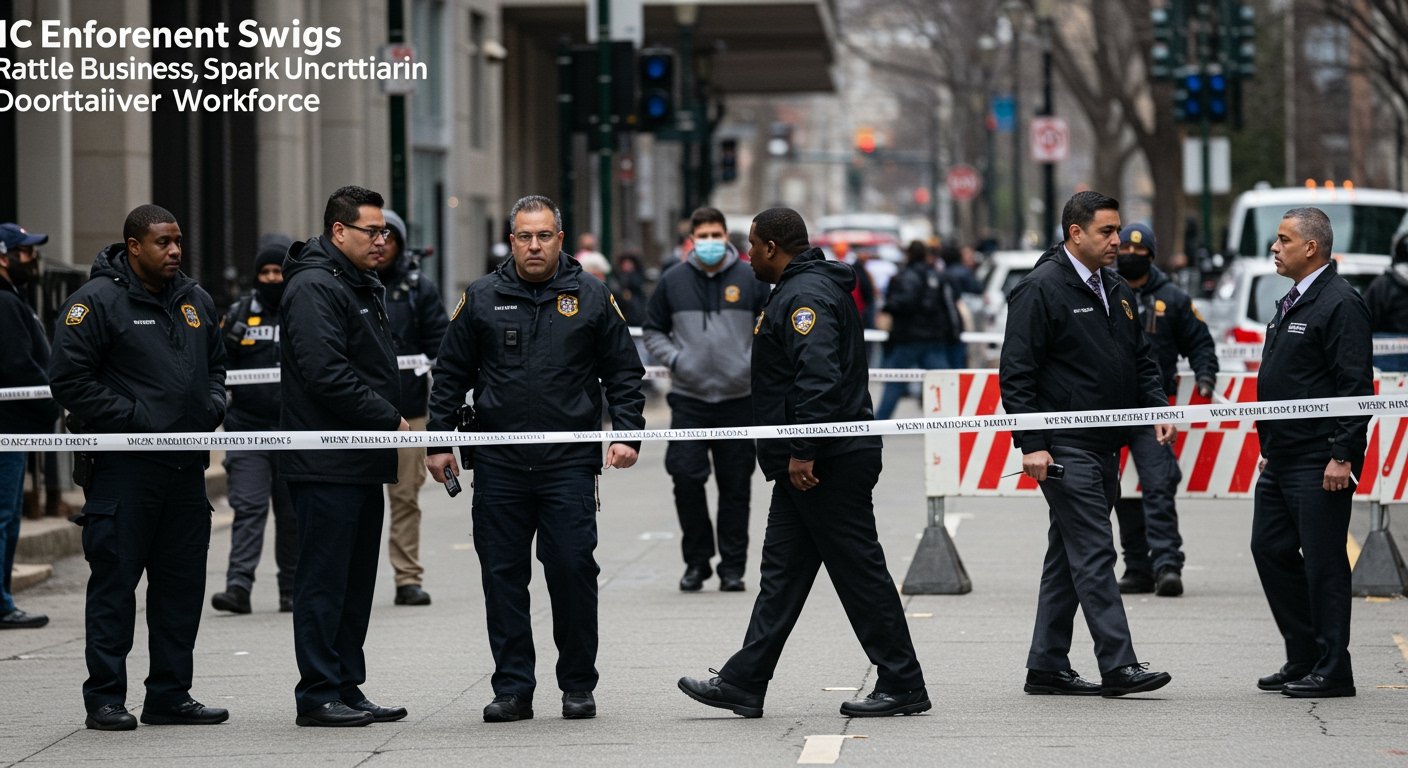Fear and profound uncertainty stemming from immigration enforcement actions are significantly impacting various sectors across the United States, leaving businesses grappling with workforce disruptions, according to a recent Associated Press report.
Industries ranging from farming and cattle ranching to hotels and restaurants are reporting adverse effects as foreign-born workers are increasingly scared away by the threat of raids by U.S. Immigration and Customs Enforcement (ICE).
Policy Whiplash: A Brief Reprieve and Swift Reversal
Earlier, President Donald Trump had reportedly ordered a temporary pause to immigration raids specifically to address the disruptions and the scaring away of foreign-born workers. Rebecca Shi, CEO of the American Business Immigration Coalition, noted that this pause had brought about a “sense of calm” among affected communities and businesses.
However, that brief respite proved fleeting. The pause abruptly ended on Wednesday when Tricia McLaughlin, Assistant Secretary of the Department of Homeland Security, issued a stark declaration: there would be “no safe spaces for industries who harbor violent criminals or purposely try to undermine (immigration enforcement) efforts.” This sudden and seemingly contradictory policy shift has understandably baffled businesses that rely on immigrant labor.
Economic Contradiction: Enforcement vs. Workforce Needs
The intensified enforcement appears to be at odds with the administration’s stated economic goals, particularly given the nation’s low unemployment rate. Douglas Holtz Eakin, president of the American Action Forum, highlighted this tension, stating that detaining individuals who are lawful immigrants makes them afraid to work. This fear directly conflicts with the need for labor, especially when the U.S. unemployment rate stands at a low 4.2%.
Business advocacy groups and immigration reform organizations have actively engaged with policymakers, conveying what they describe as “horror stories” about the tangible impact of these raids to President Trump, his administration officials, and members of Congress.
Administration Acknowledges Impact
Curiously, President Trump himself appeared to acknowledge the negative consequences of the aggressive enforcement strategy. In a post on Truth Social last Thursday, he wrote that the policy was taking away “very good, long time workers” from sectors such as farming and the hotel/leisure business.
Escalation of Enforcement Activity
The crackdown on immigration enforcement reportedly intensified a few weeks prior, following reports that White House deputy chief of staff Stephen Miller had given ICE a significant quota of 3,000 arrests per day. This represents a substantial increase compared to the approximately 650 daily arrests reported during the first five months of Trump’s second term.
This escalation, coupled with the recent policy reversal, leaves businesses and workers alike navigating an environment of heightened uncertainty. The economic implications, particularly for labor-intensive industries, remain a significant concern as the administration continues to pursue its immigration enforcement agenda.





